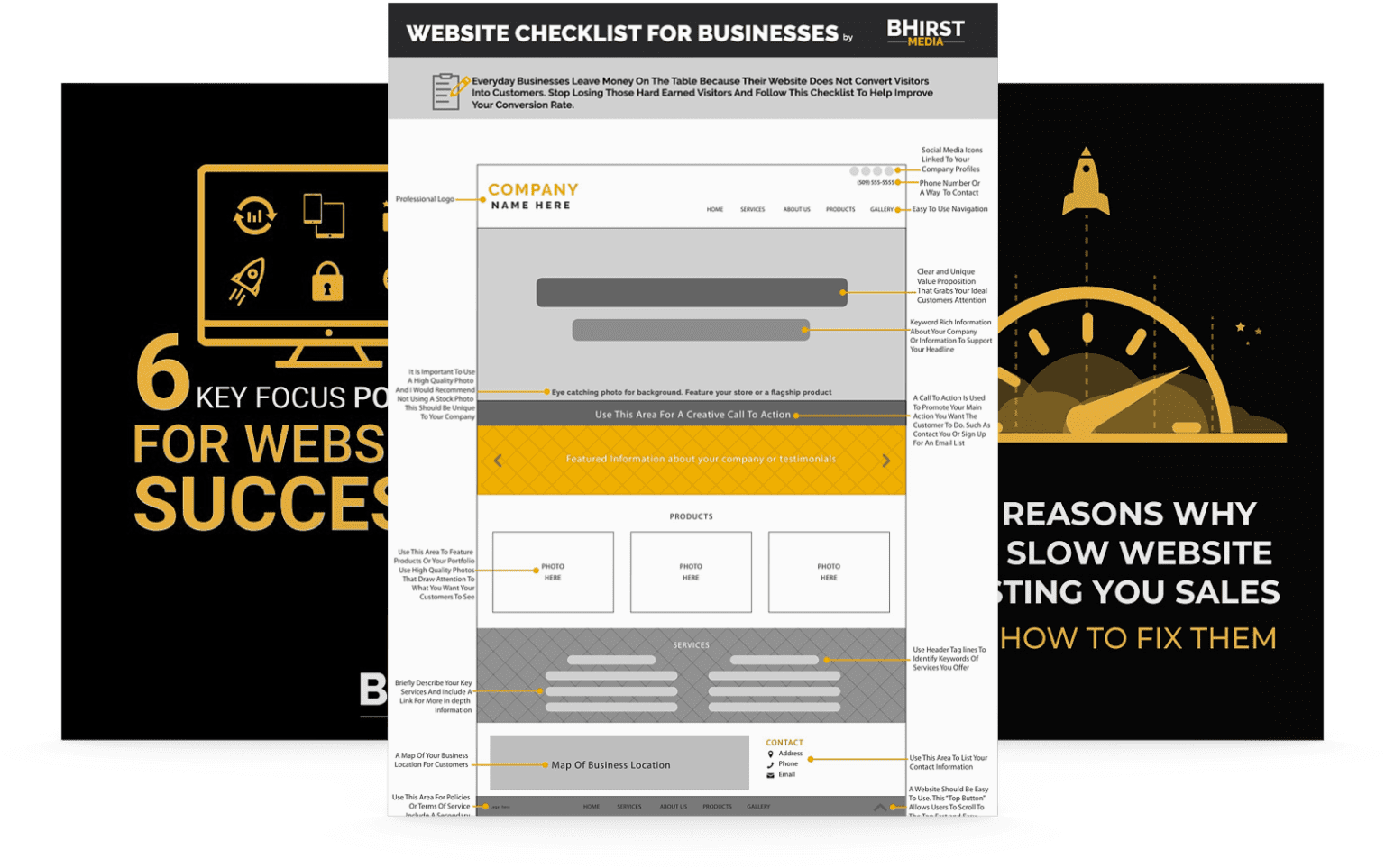
Many business owners believe that building a website is a one-time task, but this is far from the truth. Ongoing website support services are crucial for maintaining your site’s performance and security. This article will discuss the importance of regular maintenance, the benefits of continuous support, and how to choose the right services for your needs. By understanding these aspects, you can solve problems like downtime and accessibility issues, ensuring your website remains competitive and effective in attracting customers.

Ongoing website support is crucial for businesses looking to thrive in today’s digital landscape. By recognizing the evolving nature of the web, companies can prevent potential risks, such as malware attacks and policy violations, through regular maintenance and updates. Furthermore, support services ensure business continuity, enhance customer engagement, and align strategies with overall business objectives, including income generation and regulatory compliance.
Recognizing the evolving nature of the web is crucial for any business aiming for sustained success. With the increasing importance of web design that complies with the Americans with Disabilities Act of 1990, it is essential to ensure that websites are accessible to all users, including those with disabilities. Ongoing website support services not only help maintain site performance but also enhance search engine optimization, making it easier for customers to engage with the business.
Prioritizing maintenance is fundamental for businesses to prevent risks that could disrupt user experience and client interactions. Regular updates to web development practices ensure compliance with essential standards, such as web accessibility, while also safeguarding against security vulnerabilities. By leveraging analytics, businesses can identify areas for improvement, which can significantly enhance performance and user satisfaction, ultimately driving customer loyalty and engagement.
Ensuring business continuity with ongoing website support services is vital for any company. Regular updates and proactive problem-solving help avoid disruptions that could lead to lost revenue or a poor user experience. By having a reliable support system in place, businesses can swiftly address issues, maintain operational efficiency, and continue to provide excellent customer service.
Ongoing website support plays a crucial role in boosting customer engagement and loyalty. By ensuring that a website operates smoothly and efficiently, businesses can provide a positive user experience that encourages repeat visits. Regular updates, quick response times to issues, and the implementation of customer feedback create an interactive environment where visitors feel valued, leading to stronger customer relationships and increased brand loyalty.
Aligning ongoing website support strategies with overall business objectives is essential for achieving long-term success. By integrating support services into the company’s goals, businesses can ensure their online presence actively contributes to income generation and customer satisfaction. For instance, regularly updating content and design based on user feedback not only enhances user experience but also drives engagement, ultimately helping to meet specific business targets.
Ongoing support keeps your website running strong, much like a steady hand in a storm. Discover how continuous website support services can bring tangible benefits to your business.

Engaging continuous website support services offers various benefits that are vital for any business aiming to thrive online. It maximizes website performance and speed, keeping content and features up-to-date while enhancing security measures proactively. Additionally, it improves SEO to increase visibility and helps save costs through preventative support, ensuring a solid and efficient online presence. These elements work together to strengthen a business’s digital footprint and drive success.
Maximizing website performance and speed is essential for any business looking to enhance user experience and drive conversions. Slow-loading websites can lead to high bounce rates and lost revenue, so ongoing support services focus on optimizing site speed through regular updates and performance checks. By implementing the latest technologies and practices, businesses can ensure their websites load quickly, keeping users engaged and encouraging them to explore further.

Keeping content and features up-to-date is essential for maintaining an engaging and effective online presence. Regular updates not only ensure that visitors receive fresh and relevant information but also enhance the functionality of the website, which can lead to improved user engagement and satisfaction. Businesses that prioritize current content and feature updates often see higher customer retention rates and increased conversions, ultimately contributing to their overall growth:
Enhancing security measures proactively is a vital aspect of ongoing website support services. Businesses that engage in regular security updates and monitoring can significantly reduce their risk of cyberattacks, data breaches, and other vulnerabilities. By implementing strong security protocols, such as firewalls, SSL certificates, and regular backups, companies can safeguard their online assets and build trust with their customers.
Improving SEO through ongoing website support is vital for increasing visibility and attracting potential customers. Regular updates to content, metadata, and site structure help businesses rank higher in search engine results. This continuous optimization not only enhances a website’s credibility but also drives organic traffic, leading to more engagement and higher conversion rates:
Engaging in preventative support services is crucial for businesses aiming to save costs and enhance their website’s performance. By regularly addressing potential issues before they escalate, businesses can avoid expensive repairs and lost revenue resulting from downtime. Moreover, proactive measures not only preserve website functionality but also ensure user satisfaction, leading to improved customer retention and loyalty:
Website support is just the beginning. Regular maintenance can transform a good site into one that truly captivates its users.

Regular website maintenance is essential for enhancing user experience. Updating design elements improves user interaction and keeps the site visually appealing. Implementing user feedback effectively ensures that the website meets visitor expectations. Maintaining responsiveness across devices guarantees seamless access, while eliminating errors and broken links improves navigation. Additionally, providing fresh content regularly keeps users engaged and encourages repeat visits.
Updating website design is essential for improving user interaction and satisfaction. A modern, user-friendly layout can significantly impact how visitors navigate a site and engage with its content. By regularly assessing design elements and implementing user feedback, businesses can create an intuitive experience that keeps users coming back while effectively highlighting key information and offerings.
Implementing user feedback effectively is crucial for enhancing website functionality and user experience. By actively soliciting insights from visitors, businesses can identify areas that need improvement, such as navigation, content clarity, or feature usability. For instance, incorporating feedback loops, like surveys or comment sections, enables companies to make informed adjustments that align with user expectations, ultimately leading to greater satisfaction and increased engagement.
Maintaining responsiveness across devices is vital for ensuring that users have a seamless experience when accessing a website. With the growing use of mobile devices and tablets, businesses must prioritize a responsive design that adapts to various screen sizes. Regular website support services can effectively guarantee that page layouts, images, and functionalities operate smoothly on all devices, enhancing user satisfaction and engagement:
Eliminating errors and broken links is essential for enhancing user experience and maintaining a professional online presence. Broken links can frustrate visitors, leading to a loss of trust and potential customers. Regularly scanning and fixing these errors not only improves site navigation but also helps with search engine optimization, ensuring that the website remains credible and accessible to users. By prioritizing this aspect of website maintenance, businesses can create a seamless browsing experience that keeps users engaged and encourages repeat visits.
Providing fresh content regularly is vital for maintaining an engaging website that meets user expectations. By consistently updating blog posts, articles, or product descriptions, businesses can enhance user experience and keep visitors returning for more. This practice not only improves search engine rankings but also demonstrates a commitment to providing valuable information, which fosters trust and encourages customer loyalty.
A well-maintained website serves the user’s needs and builds trust. To protect that trust, continuous security support is crucial.

To effectively safeguard a website, businesses must stay informed about emerging threats and conduct regular security audits. Implementing SSL and encryption protocols is crucial for data protection, while backing up data and planning for recovery ensures resilience against potential breaches. Furthermore, educating team members on security best practices enhances overall security posture, creating a more secure online environment.
Staying informed about emerging threats is critical for maintaining website security and protecting business assets. Cyber threats are constantly evolving, and regular updates on the latest vulnerabilities can help businesses implement effective defenses. For instance, subscribing to cybersecurity news feeds or attending relevant webinars allows companies to anticipate potential risks and safeguard their online presence proactively, reducing the likelihood of data breaches and other security incidents.
Conducting regular security audits is essential for any business aiming to guard its online presence effectively. These audits help identify vulnerabilities and ensure that security measures are up to date. By routinely assessing a website’s security protocols, businesses can protect sensitive customer information and maintain trust, which is crucial in today’s digital marketplace.
Implementing SSL (Secure Socket Layer) and encryption protocols is critical for safeguarding a website’s data and maintaining customer trust. SSL certificates create a secure connection between a user’s browser and the web server, making data transmission safe from eavesdropping or tampering. This measure not only protects sensitive information, such as credit card details or personal data, but also boosts a site’s credibility in the eyes of visitors, as modern browsers prominently display security seals when these protocols are active.
Backing up data and planning for recovery are crucial steps in safeguarding a website against potential threats. Regular backups protect valuable information and allow businesses to restore their sites quickly in the event of a data loss or security breach. Implementing a robust recovery plan ensures that companies can maintain operational continuity, minimizing downtime and preserving customer trust, which is essential for modern success.
Educating the team on security best practices is an essential part of maintaining a secure website. Organizations should implement regular training sessions to ensure that employees understand protocols for password management, recognizing phishing attacks, and safe internet browsing habits. By fostering a culture of security awareness, businesses can significantly reduce vulnerabilities and enhance their overall security posture, ensuring that everyone is actively contributing to the protection of sensitive data and assets.
Security is vital, but it’s not enough. To stay ahead, every website must evolve with the changing tides of competition and technology.


Keeping a website competitive requires constant optimization. Businesses must adapt to SEO algorithm changes to maintain visibility and relevance. Utilizing analytics for ongoing improvements helps identify user behaviors and preferences. Integrating new technologies and trends enhances functionality, while optimizing loading speeds boosts performance. Continuous innovation is vital to stay ahead of competitors and meet customer expectations effectively.
Adapting to SEO algorithm changes is essential for businesses focused on maintaining their online visibility and relevance. Search engines frequently update their algorithms, impacting how websites rank in search results. By consistently monitoring these changes and adjusting strategies accordingly, businesses can improve their chances of appearing at the top of search results, leading to increased traffic and customer engagement.
Utilizing analytics for improvement enables businesses to gain critical insights into user behavior and preferences, driving better decision-making. By regularly monitoring key metrics such as bounce rates and session durations, companies can identify areas that require enhancements, ultimately leading to improved user experience and higher conversion rates. Implementing tools like Google Analytics allows for informed adjustments based on real data, ensuring that websites remain competitive and aligned with customer needs.
Integrating new technologies and trends is essential for maintaining a competitive edge in the digital space. Businesses that adopt innovative tools and platforms can significantly enhance their websites, offering improved functionalities like chatbots for customer support or integration with social media for better engagement. By consistently updating their website to reflect the latest trends, companies not only improve user experience but also position themselves as leaders in their industry, ultimately driving higher traffic and conversions:
Enhancing loading speeds and performance is essential for maintaining a competitive website. Slow websites can frustrate users and lead to high bounce rates, impacting conversion rates. By utilizing ongoing support services that focus on optimizing code, compressing images, and leveraging content delivery networks (CDNs), businesses can ensure that their websites load quickly. This not only improves user satisfaction but also positively affects search engine rankings, making it easier for potential customers to find and engage with the business online.
To remain competitive, businesses must prioritize innovation within their websites. This means regularly updating features and incorporating the latest technologies that enhance user experience, such as improved navigation tools or interactive content. By keeping the website fresh and aligned with current trends, companies can differentiate themselves from competitors and meet customer expectations effectively, ultimately driving more traffic and increasing conversion rates.
Even the best websites need a steady hand to thrive. Choosing the right support services can make all the difference in achieving lasting success.

Identifying essential support features is crucial for selecting the right services that align with business goals. Business owners must consider whether to opt for in-house or outsourced support, while also evaluating service level agreements that ensure timely assistance. Assessing the expertise and experience of providers, alongside planning for future growth and scalability, will determine the effectiveness of the chosen support services.
When selecting ongoing support services, businesses must identify essential support features that meet their specific needs. Key aspects include timely troubleshooting, regular updates, and cybersecurity measures tailored to their operations. For instance, a business could benefit from a service that provides 24/7 monitoring to quickly address issues, ensuring that their website remains functional and secure, thereby enhancing customer trust and satisfaction.
When comparing in-house and outsourced support for ongoing website services, businesses must weigh their specific needs and resources. In-house support allows for immediate communication and a team that is familiar with the company’s goals and culture, but may be limited by budget and expertise. On the other hand, outsourced support provides access to a broader range of skills and knowledge from industry experts, often resulting in more comprehensive and cost-effective solutions. Ultimately, the choice depends on the business’s priorities, such as the need for flexibility, specialized capabilities, and cost efficiency.
Evaluating service level agreements (SLAs) is crucial for businesses seeking ongoing website support services. A well-defined SLA outlines the expectations between the service provider and the business, including response times, support hours, and performance metrics. By carefully reviewing these agreements, businesses can ensure they receive timely assistance and high-quality services, which ultimately contribute to the website’s stability and success.
When selecting ongoing support services, assessing the expertise and experience of providers is crucial for ensuring a robust online presence. Experienced providers bring a wealth of knowledge in web development, security, and digital marketing, which can directly influence the effectiveness of support services. Business owners should look for providers that showcase a proven track record through client testimonials, case studies, and industry certifications to guarantee they are making an informed decision in choosing support that aligns with their specific needs:
Planning for future growth and scalability is essential for businesses that aim to adapt to changing market demands. By selecting ongoing support services that prioritize flexibility and expansion, companies can ensure their websites can accommodate increased traffic, new features, or additional products without compromising performance. This proactive approach enables businesses to stay competitive and responsive to customer needs:
Ongoing website support services are essential for businesses seeking to thrive in a competitive digital environment. Regular website maintenance not only prevents security risks but also enhances user experience, boosts customer engagement, and improves overall website performance. By aligning support strategies with business objectives, companies can ensure their online presence contributes effectively to revenue generation and customer satisfaction. Investing in continuous support is a crucial step toward achieving long-term success and maintaining a reliable, engaging online platform.
